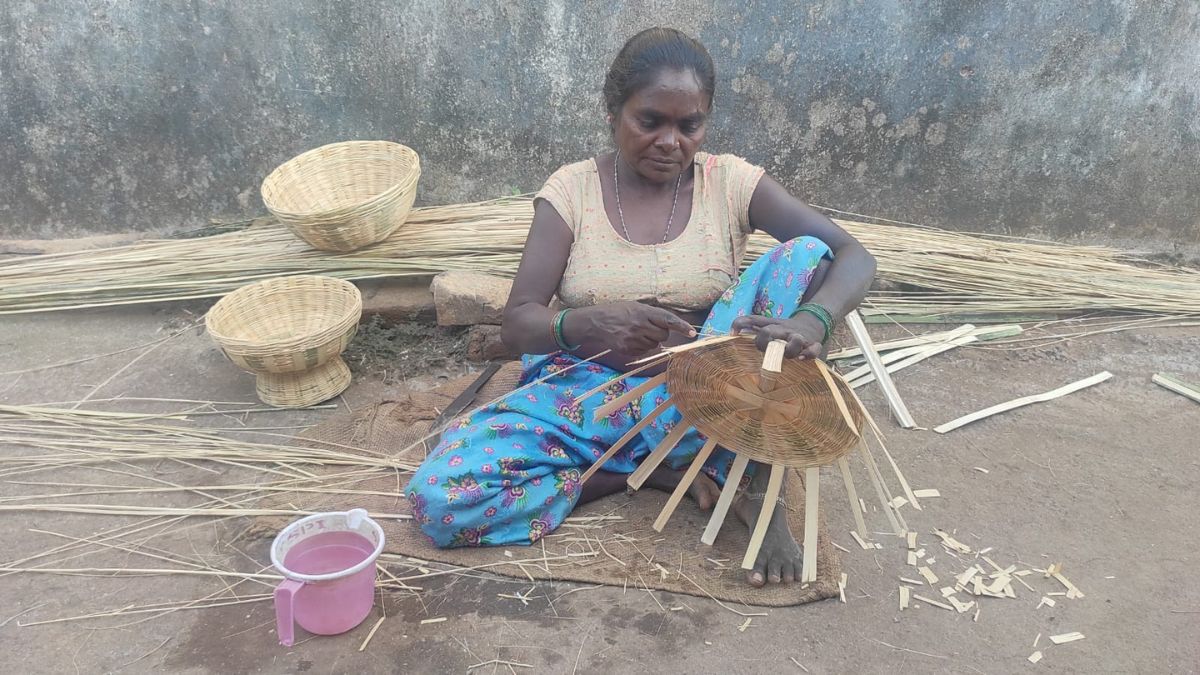Adani Foundation helps Pingot village Kotwaliya tribe artisans expand their business
The Kotwaliya people, who live in Pingot village in Netrang taluka in Bharuch district in Gujarat, have traditionally relied heavily on the forest economy

Advertisement
Bharuch : There is an urgent need to fortify the grassroots if our nation is to experience overall growth. The process of constructing a nation ought to include all pre-modern communities and primitive tribes. A common barrier to this is people’s unfamiliarity with them and what they do.
In our country, Tribes make up the vast majority of the population. One such culture is the Kotwaliyas, who are renowned as master weavers. They have been weaving bamboo into baskets and other decorative objects for centuries.

The Kotwaliya people, who live in Pingot village in Netrang taluka in Bharuch district in Gujarat, have traditionally relied heavily on the forest economy. The difficulty, however, is that they still lack access to banking services and must rely on middlemen to distribute their wares, who routinely exploit them by charging them exorbitant prices.
It is abundantly clear that indigenous and community-based entrepreneurs receive virtually no safeguards, promotion of heirloom-based products, or support of any kind. Still, things are looking up as they are being prepared for careers as business owners.
In October of last year, the Adani Foundation identified this group and has since been assisting them with training and facilitating connections to the market.
After hearing about the village from the district government’s tribal sub plan office, Usha Mishra, head of the Dahej Unit CSR at the Foundation, decided to pay it a visit with her team. Since the Foundation has been doing commendable work across India’s underserved communities, they asked us to stop by Pingot and introduce ourselves to the Kotwaliya people. Since we started intervening, they’ve learned a lot about where to find venues to sell their wares and how to maximise their profits.
There have been 15 females and 5 males found so far. They are in the process of buying new machinery that will improve both the output and the quality of their products. They’re currently in the process of forming a group and working out of their homes. The five men have been recruited as resource people, and others will be hired to actively sell the merchandise.
We must help them. Their homes are still made of mud. They use the woods as a source of raw materials. Getting hold of them is difficult for them as well. Secondly, Mishra argues that the public is unaware of the existence of the Joint Forest Management Committee because it has not been properly constituted.
Kotwaliyas are happy with the Foundation’s work and have welcomed them with open arms. They are hopeful of being streamlined. They attended an exhibition-cum-training class recently in Bharuch at the Ladies Club of Adani Ports employees, and they were visiting the city for the first time. They were touched by the reception, respect, and money that they earned that day. Each person earned around Rs 700 on a single day. They said they could not have earned that much even after a whole day of labour in their village.
“Things stand a nascent stage. Lot of effort needs to be put in for their upliftment. Our ports have a lot of demand for corporate gifting, and we have already received a purchase order. They will keep getting small orders and they will also take part in various government exhibitions in Bharuch city. When their group will be formed, they will be registered under the government’s livelihood mission and will be then eligible for a revolving fund of Rs 30,000. They can then open their own shops at the block level. This year’s budget also has benefits for primitive tribes. All this nurturing will take some time, but we are very positive,” adds Mishra.
About the Adani Foundation
The Adani Foundation, the community support and engagement arm of the Adani Group, is dedicated to making strategic social investments to achieve sustainable outcomes throughout India.
Since 1996, the Foundation has focused on core areas including education, health, sustainable livelihood, skill development and community infrastructure. With its strategies based on national priorities and global Sustainable Development Goals (SDGs), the Foundation is known for its innovative approach and focus on sustainability, which contributes to the well-being and wealth of communities surrounding the Adani Group’s businesses and beyond. At present, it operates in 5,675 villages across 19 states, impacting the lives of 7.6 million people.
Advertisement

